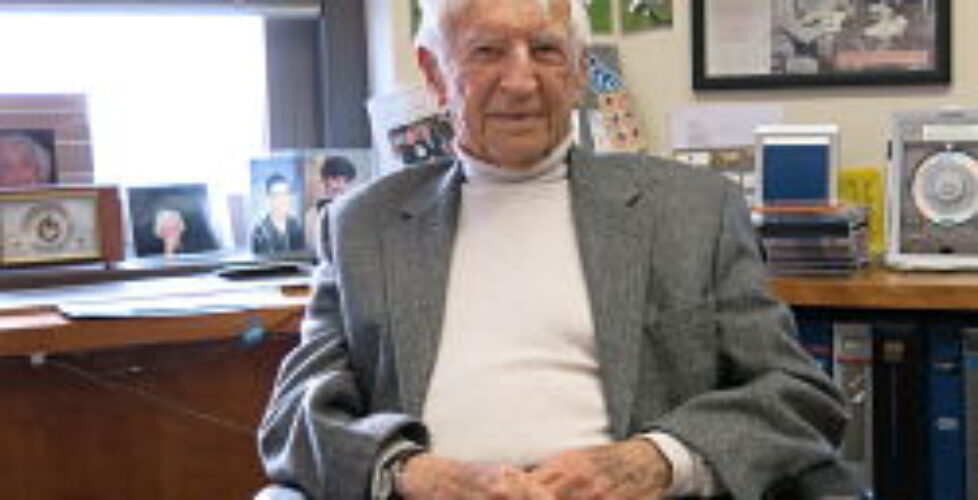Leonard Goldstein: Write To Make Right
Every day when Leonard Goldstein picks up the newspaper, he reads something that disturbs him. That’s when he gets the urge to write a letter to the editor.
“I’ve always felt Judaism is based on justice,” said the 95-year-old chair of the Temple’s Social Action Committee. “Injustice always raised my ire. I could write every day. Rikki (his wife and sometime editor) calls me ‘the last angry man.’”
By his estimates, he’s written about 4-5 letters a month, primarily to the Fort Wayne newspapers, since the very first note in 1948 when he shared his thoughts about a local judge who made anti-feminist remarks about women “trolling on the street.”
Len said he feels everyone should try this effort at tikkun olam, “repairing the world.” “When someone tells me they liked my letter, I thank them and say ‘why don’t you write?’” he said. “That’s why we have the politicians we have today because people don’t write, though we do have other Jews with opposite views of mine who also are active.”
Larry Adelman, a past president of the Temple and chair of the Jewish Federation of Fort Wayne’s Community Relations Committee, said he always looks forward to Len’s letters because of their clarity.
“He is, and always has been, the conscience of our community,” Larry said. “Whether readers agree or disagree with his position, he is universally respected in the community for his passion, his commitment, and his willingness to be heard publicly.”
Len acknowledges that he doesn’t always write when he’s irked and not everything he writes is printed. However, The Journal Gazette twice has given him the monthly Golden Pen Award for most effective letter under his name and a third time when he wrote under a nom de plume for a fellow congregant.
Len, who serves on the Temple Board, has a stack of file folders with copies of his letters to the editor. So what’s he passionate about? Jewish issues. Education. Liberal politics, economics, and Israel. Church-State issues. Women’s Rights. Health Care. Same-sex marriage.
“Letters about education get the most responses,” he said.
What makes a good letter? “It gets published,” he said with a smile, adding that letters should be thought-provoking and motivate action.
While Len does get comments on some of his letters, including during Oneg Shabbats, he said the impact of sharing his opinions this way is immeasurable. “I do it,” he said, “because I’d be frustrated if I didn’t.”
Len said he would like his epitaph someday to read: “I hope I made a difference.”

